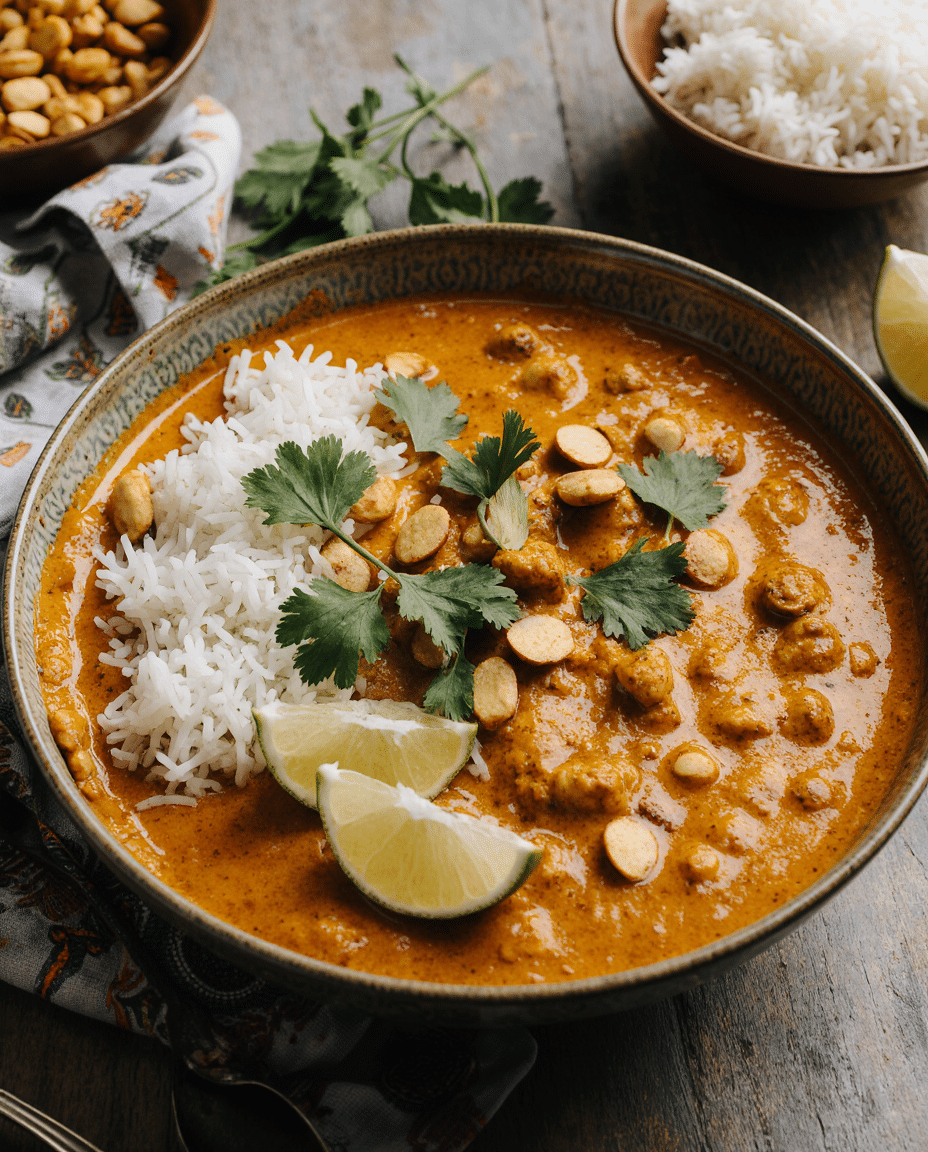This Thai Peanut Curry is a delicious, comforting dish that combines rich, creamy textures with a blend of aromatic spices. Packed with vegetables, peanuts, and coconut milk, it’s not only incredibly tasty but also nutrient-rich and perfect for any meal. It’s vegan, gluten-free, and sure to be a hit with anyone who loves a bold, flavorful curry!
Full Recipe:
Ingredients:
-
For the Red Curry Paste:
-
1 tsp salt
-
1 cup dried red chilies
-
1 lemongrass stalk
-
¼ cup cilantro (with roots)
-
1 tsp lemon zest
-
¼ cup shallots
-
½ tsp cumin seeds
-
-
For the Thai Peanut Curry:
-
2 tbsp coconut oil
-
1 garlic clove, minced
-
1 tbsp ginger root, minced
-
3 tbsp red curry paste
-
1 cup peanuts
-
1 red bell pepper, sliced thinly
-
1 sweet potato, diced
-
1 cup carrots, diced
-
3 cups vegetable broth
-
3 cups kale
-
1 cup coconut milk
-
Fresh herbs (basil, mint, cilantro) for garnishing
-
Directions:
-
Prepare the red curry paste:
Add all red curry paste ingredients to a blender and blend until smooth, adding water as needed for desired consistency. Set aside. -
Cook the curry base:
Heat coconut oil in a large pot. Add garlic and ginger, cooking for a few minutes until fragrant. Stir in the red curry paste and cook for another 2-3 minutes. Add the peanuts and cook for an additional 2-3 minutes. -
Add vegetables and simmer:
Add the sliced red bell pepper, sweet potato, carrots, and vegetable broth. Season with salt and pepper to taste. Bring to a simmer and cook on medium for about 20 minutes until vegetables are tender. -
Finish the curry:
Stir in kale and coconut milk. Mix well and simmer for another 5 minutes. Serve with fresh herbs like basil, mint, or cilantro.
Nutrients (per serving):
-
Calories: 337 kcal
-
Carbohydrates: 23g
-
Protein: 9g
-
Fat: 26g
-
Saturated Fat: 13g
-
-
Sodium: 920mg
-
Potassium: 718mg
-
Fiber: 6g
-
Sugar: 7g
-
Vitamin A: 12,653 IU
-
Vitamin C: 70mg
-
Calcium: 89mg
-
Iron: 4mg






